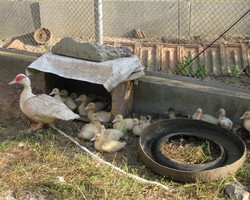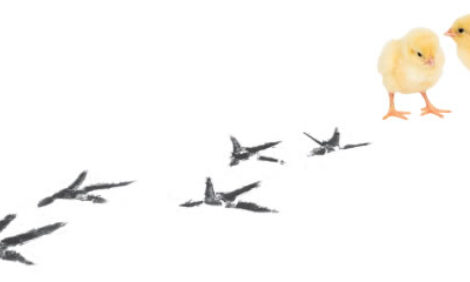



WHO Europe offers advice for handling dead or sick birds amid increase in bird flu outbreaks
WHO European Region has reported an increase in avian influenza outbreaks - a review of handling dead or sick birds.
© WHO
No human infections have been reported in connection with the current outbreaks. However, since some avian influenza viruses, also known as ‘bird flu’, can infect humans, it is important that people take protective steps and avoid contact with sick and dead birds or contaminated environments, according to WHO Europe.
Spread of avian influenza viruses through migratory birds
Water and shorebirds can carry avian influenza viruses which can be spread over large distances through migration. In the European Region every autumn, wild birds start migrating south-westwards from their breeding grounds in the north-eastern part of the Region to spend the winter in warmer places. In recent weeks, several countries located along the routes flown by migrating birds have reported avian influenza virus outbreaks in domestic poultry, which mainly appear to be linked to introductions through wild birds.
Outbreaks in domestic poultry and detections in wild birds
Based on data retrieved from the Food and Agriculture Organization’s Empres-i Global Animal Disease Information System, as of 24 January 2020, highly pathogenic H5 avian influenza viruses caused 24 outbreaks in domestic poultry in six countries between 30 December 2019 and 18 January 2020. Poland, Hungary, Slovakia, Romania and Czech Republic identified highly pathogenic avian influenza (HPAI) subtype A(H5N8) and Ukraine HPAI H5 with the N-type not reported. Poland and Germany also detected HPAI A(H5N8) in wild birds.
In most affected countries, HPAI A(H5N8) was last reported in spring 2017 when the largest outbreak in poultry and wild birds ever recorded in the Region took place in 2016/17, resulting in millions of birds being culled and high economic losses. Vigilance of the public and close collaboration between the public health, veterinary and environmental authorities is important in the coming weeks to ensure rapid detection of avian influenza viruses in birds and to protect human health.
Advice for people handling dead or sick birds
People whose work brings them into contact with infected birds or their environments (i.e. farm workers, veterinarians, cullers etc.) should wear personal protective equipment and adhere to good hand hygiene. Local health authorities should register people exposed and monitor their health status for seven days following the last day of exposure. If a person develops symptoms, influenza-specific antivirals should be administered according to WHO guidelines.
General protective measures to reduce the risk of infection with avian influenza viruses include:
- Avoiding direct or close contact with sick or dead birds (poultry and wild birds) or contaminated environments and report sick or dead birds to responsible authorities.
- Not touching birds, dead or alive, with bare hands. If you must handle a dead bird, wear gloves or use an inverted plastic bag to collect the bird. Make sure you wash your hands with soap and water or use a suitable disinfectant after handling.
- Follow good food safety and food hygiene practices in line with WHO’s Five Keys to Safer Food Programme; for instance, cook poultry or wild birds thoroughly at sufficiently high temperatures.
Avian influenza viruses and risk for human health
It is rare for humans to catch avian influenza and is mostly linked to direct or close contact with live or dead infected birds or their environments. To date, no human infections with HPAI A (H5N8) have ever been reported. However, avian influenza viruses need to be watched closely because they can change, potentially resulting in viruses that can pass from animals to humans. People in countries experiencing outbreaks are advised to take the protective measures listed above.









